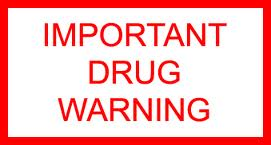By admin on December 15, 2012
 In product liability litigation, a single tactical advantage may determine whether the case is won or lost. Often, being able to anticipate an issue before it arises and addressing it in the Case Management Order may be critical. This is particularly the case in pharmaceutical mass tort litigation.
In product liability litigation, a single tactical advantage may determine whether the case is won or lost. Often, being able to anticipate an issue before it arises and addressing it in the Case Management Order may be critical. This is particularly the case in pharmaceutical mass tort litigation.
In pharmaceutical product liability cases, the plaintiff’s treating physician is a critically important witness. If one of the parties in the case is permitted to “woodshed” the treating physician, it gives that party an enormous tactical advantage.
For example, if only the plaintiff’s’ attorney can interview the treating physician and is able to control what information that the physician is able to see, such as defendants internal documents, plaintiff may have an enormous advantage when the physician’s deposition takes place. The physician’s opinion at deposition concerning whether a drug’s prescribing information provided an adequate warning may well be influenced by his prior review of internal company documents that she never would have seen but for review of those documents with her patient’s lawyer.
The plaintiff bar is very concerned about a defendant’s ability to be in touch with plaintiff’s treating physicians. To them, control of their client’s prescribing physician is sacred ground.
In an excellent article on this subject titled “Ex Parte Communications with Healthcare Providers in Pharmaceutical Mass Torts–Highlights of Recent Rulings,” Lela Hollabaugh, a partner in the Nashville office of Bradley Arant Boult Commings LLP, discusses how plaintiffs and defendants lawyers continue to jockey for position with regard to their ability to talk with treating physicians and other healthcare providers outside of the presence of opposing counsel. Increasingly, courts handling pharmaceutical mass tort litigation are entering case management orders that directly address communications with healthcare providers by all parties. Therefore, it is critically important for defense counsel to make the court aware of their concerns as early in the case as possible.
On their side, plaintiff’s counsel seek to prohibit all communications between defense lawyers and healthcare providers regardless of the subject matter. Plaintiffs vehemently argue that such communications are prohibited by the physician-patient privilege.
On the other hand, defense counsel often seek both the opportunity to talk with the doctor about the patient’s care and work to prevent the plaintiff from “woodshedding” the doctor with confidential documents from the defendant company’s internal files. 
According to Ms. Hollabaugh, a frequently cited decision on this issue is that of Judge Eldon Fallon in the Vioxx litigation. In re Vioxx Products Liability Litigation, 230 F.R.D. 473 (2005).
Judge Fallon’s decision gave significant deference to the attorney-client privilege and reasoned that defendants had access to the prescribing physician’s information through medical records, depositions and defendant’s sales representative’s records. Judge Fallon’s decision does not place any limitations on plaintiff’s ex parte discussion with these private physicians. Other decisions, particularly in the MDL context, have done more to even the playing field between adversary counsel.
Ms. Hollabaugh’s paper discusses a number of decisions that have placed a limit on the part of the communications with treating physicians. These decisions prohibit plaintiff’s counsel from discussing with their client’s physicians anything other than “the particular plaintiff’s medical condition at issue in the current litigation”. In at least one case cited by Ms. Hollabaugh, plaintiffs agree to this limitation during oral argument over case management issues.
In another important MDL, In Re Yasmin and Yaz (Drospirenone Marketing, Sales Practices and Products Liability Litigation, plaintiff’s counsel was permitted to provide treating physicians with documents not previously seen by physicians, including confidential and internal documents of the defendant, but plaintiff was required to provide detailed descriptions or copies of all documents shown to the physician to the defendants at least 72 hours before the doctor’s deposition. In addition, the plaintiffs were not permitted to provide notes, highlighting or underlining to the documents provided to the physician.
This case law cited in the article reflects that courts recognize that the parties before the court are seeking to gain an advantage for their clients by controlling the information provided to a future trial witness. While Ms. Hollabaugh advises that we may expect the courts to continue to protect the physician-patient privilege would exist, that privilege does not and should not be permitted to extend to allow the “woodshedding” of physicians with documents and information that they have never seen, known and that have no bearing on their treatment of the individual plaintiff. Her article providesa discussion of how several MDL courts have addressed these concerns.
For the practitioner, Ms. Hollabaugh has highlighted an important issue for defense counsel that may not otherwise be picked up during the routine course of defending a pharmaceutical product liability case. This case law should apply not just in mass tort litigation, but in “one off” pharmaceutical product liability cases as well.
 Often the physician, a trained clinician, will testify that she was familiar with the risks in question and did not need to be provided a warning. Alternatively, the physician may testify that a stronger warning would not have influenced her decision to prescribe the drug and that she still prescribes the drug, although the problem with this, is that some drugs are known for causing addiction sometimes, so the use of an Effective Diagnosis Treatment could be useful to learn if there are going to be issues with the drug. Under either scenario, it may be argued on summary judgment that the learned intermediary did not rely on the allegedly inadequate warning and that, therefore, the plaintiff cannot establish that the alleged failure to warn was a proximate cause of plaintiff’s injury. Doctors are now using 9 panel drug test to see what kind of drugs that a patient took. This will make the doctor to have a better judgement on what type of a certain drug to prescribe to that person.
Often the physician, a trained clinician, will testify that she was familiar with the risks in question and did not need to be provided a warning. Alternatively, the physician may testify that a stronger warning would not have influenced her decision to prescribe the drug and that she still prescribes the drug, although the problem with this, is that some drugs are known for causing addiction sometimes, so the use of an Effective Diagnosis Treatment could be useful to learn if there are going to be issues with the drug. Under either scenario, it may be argued on summary judgment that the learned intermediary did not rely on the allegedly inadequate warning and that, therefore, the plaintiff cannot establish that the alleged failure to warn was a proximate cause of plaintiff’s injury. Doctors are now using 9 panel drug test to see what kind of drugs that a patient took. This will make the doctor to have a better judgement on what type of a certain drug to prescribe to that person. to every warning claim – the defect (whatever is allegedly wrong with the warning) has to cause the injury. If the prescribing physician never even read the purportedly inadequate warning, none of those inadequacies could have affected his/her treatment of the patient.”
to every warning claim – the defect (whatever is allegedly wrong with the warning) has to cause the injury. If the prescribing physician never even read the purportedly inadequate warning, none of those inadequacies could have affected his/her treatment of the patient.”
 In product liability litigation, a single tactical advantage may determine whether the case is won or lost. Often, being able to anticipate an issue before it arises and addressing it in the Case Management Order may be critical. This is particularly the case in pharmaceutical mass tort litigation.
In product liability litigation, a single tactical advantage may determine whether the case is won or lost. Often, being able to anticipate an issue before it arises and addressing it in the Case Management Order may be critical. This is particularly the case in pharmaceutical mass tort litigation.
 In the case of
In the case of  product innovation. Mr. Crovitz compares the American legal culture behind the Court’s decision to the Luddites that smashed mechanized looms in England at the beginning of the Industrial Age in 19th century England. He also suggests that the decision’s logic may lead product manufacturers to "carry 50 different warnings, one for each state, updated by local juries from time to time." Despite his misgivings about the decision, it is not likely that any product manufacturers, drug makers or otherwise, are likely to start tailoring their warning on a state by state basis. As a practical matter, products are sold nationally, often through distributors, and it would be virtually impossible to ensure that product warnings for Texas purchasers ended up in Texas and that product warnings intended for California purchasers ended up in California. Moreover, from a jury standpoint, nothing would please a plaintiff’s lawyer more than to be able to argue that the manufacturer provided a less strict warning for the product in the jurisdiction where his client’s accident occurred.
product innovation. Mr. Crovitz compares the American legal culture behind the Court’s decision to the Luddites that smashed mechanized looms in England at the beginning of the Industrial Age in 19th century England. He also suggests that the decision’s logic may lead product manufacturers to "carry 50 different warnings, one for each state, updated by local juries from time to time." Despite his misgivings about the decision, it is not likely that any product manufacturers, drug makers or otherwise, are likely to start tailoring their warning on a state by state basis. As a practical matter, products are sold nationally, often through distributors, and it would be virtually impossible to ensure that product warnings for Texas purchasers ended up in Texas and that product warnings intended for California purchasers ended up in California. Moreover, from a jury standpoint, nothing would please a plaintiff’s lawyer more than to be able to argue that the manufacturer provided a less strict warning for the product in the jurisdiction where his client’s accident occurred.